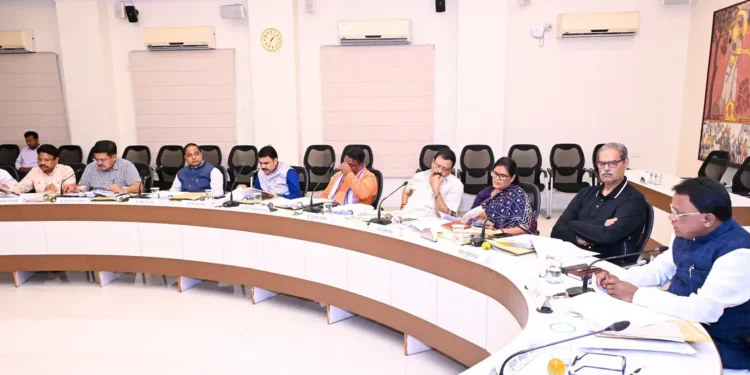Bhubaneswar – In a significant step towards boosting agriculture, healthcare, and urban infrastructure, the Odisha Cabinet chaired by Chief Minister Mohan Charan Majhi has approved multiple major proposals across various sectors. The Cabinet cleared the Cooperation Department’s plan to establish Model Mandis across the state to strengthen the agricultural marketing ecosystem. In the first phase, 38 mandis, including 14 large, 17 medium, and seven small ones, will be developed with modern amenities such as advanced storage facilities, raised concrete drying platforms, covered sheds, quality-testing kiosks, cooling chambers, rest sheds, clean toilets with separate facilities for women, eateries, vending zones, bank branches, ATMs, and parking areas. The Odisha Bridge and Construction Corporation Ltd will execute the Rs300 crore project during the 2025–26 and 2026–27 financial years, while the identification of 62 more mandis for the second phase is already underway.
The Cabinet also approved a Rs382 crore mega drinking water project for Sambalpur city, which will provide round-the-clock ‘Drink from Tap’ quality water to all households in Sambalpur, Hirakud, and Burla towns as per CPHEEO guidelines. The project will cater to the current population of 4.75 lakh and the projected 7 lakh by 2043, and will include an intake well with 110 MLD capacity at Hirakud dam, two conventional water treatment plants at Tipupada (65 MLD) and Burla (35 MLD), three self-water lubricated vertical turbine sets, and six centrifugal pump sets. Construction will start on September 1, 2025, with a completion target of August 31, 2027.
In the healthcare sector, the state government will establish seven new government nursing colleges in addition to the existing eight nursing colleges and 21 ANM training centres. The Cabinet approved the framing of the Odisha Nursing Education Service (Method of Recruitment and Conditions of Service) Rules-2025 to facilitate faculty recruitment and promotions. The new nursing colleges will be set up at medical colleges and hospitals under a centrally sponsored scheme. The rules will outline recruitment methods for base-level teaching posts such as tutors, provide for promotions, and help fill existing vacancies, thereby strengthening nursing education in Odisha.
In total, seven proposals from six departments received the Cabinet’s nod, marking a major push towards improving the state’s agricultural infrastructure, urban water supply, and healthcare education facilities.



